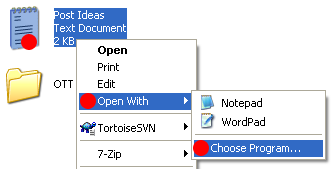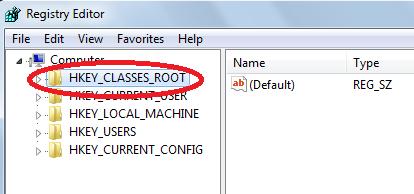How to open file with FLV extension?
A detailed description
Flv is one of the most popular formats for video. FLV stands for Flash Video player. This video file format is used by Adobe Flash Player and Adobe Air on the web. With help of .flv file format, flash videos can be played in latest version of flash player. This file format can also be used on the internet to synchronize video and audio streaming so that viewers can watch. FLV is a very common video format and it is being used by almost every website and all embedded videos online. Google Video, You Tube and many other websites use FLV file format.
The FLV file extension belongs to the category Video Files. The extended name of this file format is Flash Video File. Below is a list of programs that support files with this extension. Just download one of them, then double click on the FLV file, which did not want to open and manually select the program installed by default. The FLV file should open now without any problem.
It can also happen that, despite the installation of one of the following programs, your FLV file will still return an error when you try to run it. In such a case, refer to the next part of our article, where we present solutions to most problems that may occur when you try to work with the new file extension, which is the FLV.
The contents covered by the rest of the article:
FLV file extension
Associating the FLV file with the installed software

At the first start of the FLV file, after installing a new application from the list above, the operating system should automatically associate our FLV file with the installed program. However, if that did not happen, we can do this step ourselves. Therefore, it is necessary to:
- Right-click the FLV file that we want to open, then clicking the option "Open with"
- Then go to the "Choose default program" and we look for the path where our new application has been installed (in most cases it is the "Program Files" directory on drive C: at our computer and then the folder with the name of the installed program)
- Confirm by pressing the OK button
When you do this, the operating system should automatically associate our FLV extension with the new application. If for some reason this operation could not be performed in the manner indicated, see how to add association manually in the Windows Registry
Possible problems with the FLV file
Typical error of the FLV extension is shown by an error message when you try to open or read a file with extension that is not compatible with the programs installed on your computer. If while trying to open a FLV file Windows will not be able to locate a particular program, the following errors may be displayed "No script engine for FLV file extension", "Invalid file extension: undefined", "Incompatible file extension and file table", "Invalid file extension". It is important to react quickly and fix errors that may be caused by the following problems:
The file may be corrupt
In this case, the solution may be to find another copy of the FLV file, to ask for another copy of it (if you got it from another person), or to try to download it again from the internet.
Entries of associations of the FLV file in the Windows Registry may be incorrect
In this case, you can try to delete the file for the extension of the FLV file and create it again. The information about how to find the registry entry can be found in the further part of the article
The entry containing the file associations in the Registry may have been deleted.
In this case, you must associate the FLV file with the application either by selecting the application (information here) or manually (information here).
The application for supporting the FLV file has not been entirely installed.
Check if the application opens up properly. If there is a problem, you can try to install it again.
The file has been infected by viruses or spyware.
Install any antivirus program, specializing in the removal of Malware and Spyware types of viruses, scan your computer and try again.
Your computer does not have sufficient resources to the currently open the FLV file.
To open some files, the program needs now a large amount of CPU resources. If you are using many applications at the moment, try closing unnecessary ones and try again.
We do not have updated drivers for the application to open the file.
We install all the drivers that are needed to run the application that supports the FLV file.
Manual entry of the file type to the Windows Registry

Very important!
Before you make any manual changes to the Windows Registry, make its copy earlier. With manual operations it is not difficult to make a mistake, and the changes are irreversible. Therefore, it is good to have a backup. Remember that the website is not liable for any damages that may arise during the use of the information given. If you are not sure that you can do these things, ask an expert for help.
How to do this?
Most of the items on the registry concerning the FLV file are added automatically during installation of the program/application. In some situations, the user himself has to create a new registry entry, and type in the appropriate value. This method can be used to associate a file type with an existing application. Then locate the ProgID of the application in the registry. To access the Windows registry editor - click "Start", type "regedit", and then press ENTER.
To associate the FLV file type with the new application, you must define the ProgID for a particular application and if you want to get information on defining a new ProgID, you should see the program identifiers. For information about file extensions and its associations with applications look in the key HKEY_CLASSES_ROOT .
To make it easier, here is an example:
We assume that we want a file type with a short extension .FLV and a long extension .FLV-file was opened using MyApplication. You should therefore use the syntax (creating in the registry a short extension .FLV and a subkey for the long extension .FLV-file) in the following way:
HKEY_CLASSES_ROOT
.flv
(Default) = ProgramVendor.MyApplication
.flv-file
(Default) = ProgramVendor.MyApplication
ProgramVendor.MyApplication
(Default) = MyApplication Program
Have you ever got a file that you could not open? Probably the situation was that it had an extension not used before on your computer, e.g. FLV. Such a situation could also take place with other extensions, but it always ended the same - giving you a headache when determining which program should be used to properly open the file.
Typically, Windows has the appropriate software to open the FLV file or just preview its contents. Often, however, there is no such software, and then we need to identify what kind of file it is, and download the appropriate software to support it.
Many people have no idea where to start. The simplest solution is to visit our website and search for the appropriate extensions in our database.
Conversion of a FLV file
flv to bik, flv to 264, flv to 3gp, flv to 3gpp2, flv to avc, flv to avi, flv to bnk, flv to divx, flv to f4v, flv to m2ts, flv to m4v, flv to mkv, flv to mov, flv to mp3, flv to mp4, flv to mpeg, flv to mpg, flv to mts, flv to ogg, flv to swf, flv to trp, flv to ts, flv to vob, flv to webm, flv to wmv,
264 to flv, 3g2 to flv, 3gp to flv, avc to flv, bik to flv, dash to flv, fbr to flv, h264 to flv, m2ts to flv, m4v to flv, mjpg to flv, mkv to flv, mov to flv, mp3 to flv, mp4 to flv, mpeg to flv, mpg to flv, swf to flv, trp to flv, vob to flv, webm to flv, wmv to flv, xvid to flv,





